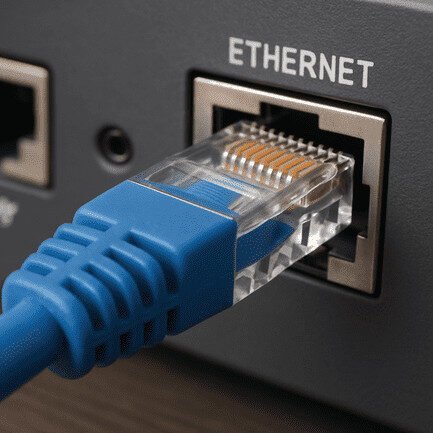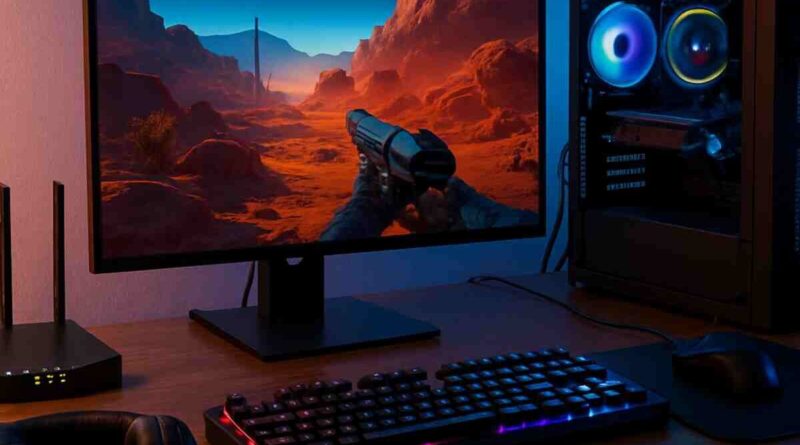How to Optimize Internet for Gaming
So, you’re ready to dive into the world of gaming, but there’s just one thing holding you back—your internet connection. If you’ve ever yelled at your screen because of lag or lost a match due to a high ping, you’re not alone. Let’s talk about how to optimize your internet for gaming so you can get back to dominating the leaderboards. Look into the Best info about ทางเข้า funny888.
Before we get into the nitty-gritty, let’s talk about latency. In gaming, latency refers to the delay between your action and the game’s response. If you want smooth gameplay, you need low latency. High latency, on the other hand, can turn your gaming session into a frustrating experience.
What is Latency?
Latency is essentially the time it takes for data to travel from your gaming device to the game server and back again. This round-trip time is crucial because even milliseconds can make a difference in competitive gaming. The lower the latency, the quicker your actions are registered in the game, offering a seamless experience.
How Latency Affects Your Gameplay
High latency can result in what gamers call “lag,” where there is a noticeable delay between your input and the game’s reaction. This can be detrimental in fast-paced games like first-person shooters or real-time strategy games. In these scenarios, even a slight delay can mean the difference between victory and defeat.
Tools to Measure Latency
To effectively manage latency, you need to measure it. Several online tools and software can help you determine your current latency, often referred to as “ping.” Understanding your baseline ping can help you identify when there are issues with your connection and take steps to troubleshoot them.
Choose the Right Internet Connection
First things first, you need the right kind of internet connection. Fiber optic internet is ideal for gaming because it offers the lowest latency. Cable is a close second, but if you’re using DSL or satellite, you might want to consider an upgrade.
Benefits of Fiber Optic Internet
Fiber optic internet is renowned for its speed and reliability. Unlike other types of connections, fiber optic cables transmit data as light, which drastically reduces latency and increases bandwidth. This makes it the top choice for serious gamers looking to minimize delays and maximize gameplay efficiency.
The Limitations of DSL and Satellite
DSL and satellite connections often suffer from higher latency and slower speeds. DSL relies on older telephone lines, which can be congested and slow, while satellite internet is affected by long distances and atmospheric conditions. These limitations can severely impact your gaming experience, making it worthwhile to consider upgrading.
Evaluating Internet Service Providers
When choosing an internet connection, it’s essential to evaluate different providers in your area. Look for ISPs that offer high-speed plans with low latency guarantees. Reading customer reviews and seeking recommendations can also provide insights into the reliability and performance of different providers.
Wired vs. Wireless: The Eternal Debate

While Wi-Fi is convenient, it’s not always the best choice for gaming. A wired Ethernet connection is more stable and offers lower latency. If possible, plug your gaming device directly into your router using an Ethernet cable.
Stability of Wired Connections
Wired connections provide a direct link between your device and the router, eliminating many of the interference issues associated with Wi-Fi. This stability is crucial for maintaining low latency and consistent speeds, especially during peak gaming times or competitive matches.
Convenience and Flexibility of Wireless
While wireless connections offer the convenience of mobility and ease of setup, they are often susceptible to interference from other devices and physical obstructions. This can lead to fluctuations in signal strength and increased latency, impacting gaming performance.
Finding the Right Balance
For many gamers, finding the right balance between wired and wireless connections is key. If a wired connection isn’t feasible throughout your home, consider using a Powerline adapter, which uses your home’s electrical wiring to provide a stable Ethernet connection in different rooms.
Optimize Your Network Settings
Once you’ve got the right connection, it’s time to optimize your network settings. This involves a little bit of tweaking, but it’s not as hard as you might think.
Prioritize Your Gaming Traffic
Many modern routers come with Quality of Service (QoS) settings that allow you to prioritize gaming traffic. Enabling this feature can ensure your gaming data takes precedence over other types of data on your network, reducing latency.
Understanding Quality of Service (QoS)
Quality of Service (QoS) is a feature that helps manage bandwidth by prioritizing certain types of traffic on your network. By enabling QoS for gaming, you can ensure that your gaming packets are given priority over other data, such as video streaming or downloads, minimizing latency and improving performance.
Advanced Router Configurations
Beyond QoS, there are additional settings on your router that can enhance gaming performance. Disabling unused features like UPnP, adjusting MTU settings, and ensuring your router operates on the optimal frequency band are just a few ways to fine-tune your network for gaming.
Secure Your Network
An unsecured network can be susceptible to unauthorized access, which can consume bandwidth and introduce latency. Make sure your network is secured with a strong password and consider setting up a guest network to keep non-gaming traffic separate.
Update Firmware and Drivers
Don’t overlook the importance of keeping your router’s firmware and your device’s network drivers up to date. Updates often include performance improvements and bug fixes that can enhance your gaming experience.
The Role of Firmware in Network Performance
Firmware updates for your router can significantly impact performance and stability. Manufacturers often release updates to address security vulnerabilities, improve compatibility, and enhance speed. Regularly checking for and installing these updates is essential for maintaining an optimal gaming environment.
Keeping Device Drivers Up to Date
Network drivers on your gaming device also play a crucial role in connectivity. Outdated drivers can lead to compatibility issues and reduced performance. Regularly updating your network drivers ensures that your device can take full advantage of your connection’s capabilities.
Automating Updates for Convenience
To make the process easier, consider enabling automatic updates for both your router firmware and device drivers. This ensures you receive the latest enhancements without having to manually check for updates, keeping your network optimized with minimal effort.
Reduce Network Interference
Network interference can wreak havoc on your gaming experience, especially if you’re using Wi-Fi.
Minimize Signal Obstructions
Wi-Fi signals can be blocked by walls, furniture, and even other electronic devices. Place your router in a central location, free from obstructions, to ensure a strong signal throughout your home.
Identifying Common Sources of Interference
Common household items like microwaves, cordless phones, and Bluetooth devices can interfere with Wi-Fi signals, leading to increased latency. Identifying these sources and taking steps to minimize their impact, such as repositioning your router or changing its frequency band, can help maintain a stable connection.
Using Wi-Fi Extenders and Mesh Networks
For larger homes or areas with significant obstructions, consider using Wi-Fi extenders or setting up a mesh network. These solutions can help extend your network’s reach and eliminate dead zones, providing consistent coverage and reducing latency.
Frequency Band Optimization
Most modern routers operate on both 2.4GHz and 5GHz frequency bands. Each has its advantages and limitations. The 2.4GHz band offers broader coverage but is more prone to interference, while the 5GHz band provides faster speeds but has a shorter range. Optimizing your frequency band based on your needs can enhance your gaming experience.
Reduce Connected Devices
The more devices connected to your network, the more bandwidth they’re consuming. Disconnect any devices that aren’t in use to free up bandwidth for gaming.
Managing Bandwidth Allocation
Many devices consuming bandwidth simultaneously can lead to network congestion, increasing latency for gaming. By managing bandwidth allocation and ensuring non-essential devices aren’t hogging bandwidth, you can maintain a smoother gaming experience.
Use of Network Management Software
Network management software can help monitor and control bandwidth usage across devices. These tools can identify bandwidth-heavy applications and provide options to limit their consumption, ensuring your gaming sessions remain uninterrupted.
Scheduled Device Usage
Consider scheduling times for bandwidth-heavy activities, like downloads or streaming, outside of your gaming sessions. This can prevent these activities from consuming bandwidth during crucial gaming moments, reducing the likelihood of lag and high latency.
Check Your Internet Speed
Sometimes, the simplest solution is the most effective. Use an online speed test to check your internet speed. If your speed is slower than advertised, contact your internet service provider (ISP) to troubleshoot the issue.
Understanding Internet Speed Tests
Internet speed tests provide a quick and easy way to measure your current connection speed. These tests typically measure download, upload, and ping speeds, providing insights into potential issues with your connection that could affect gaming performance.
Interpreting Speed Test Results
Once you’ve run a speed test, it’s important to understand the results. Compare the measured speeds against your ISP’s advertised speeds and the requirements of your favorite games. Identifying discrepancies can help you pinpoint issues that need addressing.
Troubleshooting Slow Speeds
If your speed test results are consistently lower than expected, it’s time to troubleshoot. Contacting your ISP for assistance, checking for local outages, and ensuring your equipment is functioning properly are all steps you can take to resolve speed issues and improve your gaming experience.
Consider a Speed Upgrade
If your internet speed isn’t up to par, consider upgrading your plan. Higher speeds can accommodate more devices and provide the low latency needed for optimal gaming performance.
Evaluating Your Current Plan
Assess your current internet plan to determine if it meets your gaming needs. Consider the number of devices on your network, the types of games you play, and your desired performance level. This evaluation can help you decide if an upgrade is necessary.
Exploring ISP Plan Options
Many ISPs offer a range of plans with varying speeds and features. Exploring these options and comparing them to your current plan can help you find a better fit for your gaming needs. Look for plans that offer higher speeds, lower latency, and additional perks that enhance your gaming experience.
Cost-Benefit Analysis of Upgrading
While upgrading your internet plan may come with additional costs, the benefits often outweigh the expense. Faster speeds and lower latency can lead to a more enjoyable gaming experience, reducing frustration and allowing you to focus on what matters most—winning.
Use a Gaming VPN
A Virtual Private Network (VPN) can help improve your gaming experience by connecting you to a server closer to the game server, potentially reducing latency.
Advantages of Gaming VPNs
Gaming VPNs can offer numerous benefits beyond reducing latency. They can help you avoid bandwidth throttling by your ISP, provide access to geo-restricted games, and enhance security by encrypting your connection. These advantages make gaming VPNs a valuable tool for avid gamers.
Choosing the Right VPN for Gaming
Not all VPNs are created equal. When selecting a VPN for gaming, prioritize those that offer low-latency servers, fast connection speeds, and a user-friendly interface. Reading reviews and seeking recommendations can also guide you in choosing a VPN that meets your gaming needs.
Balancing VPN Use with Latency
While VPNs can reduce latency, they can also introduce a slight delay. Balancing the use of a VPN with your gaming requirements is crucial. Experimenting with different servers and configurations can help you find the optimal setup for your connection.
Regularly Restart Your Equipment
Sometimes, a simple restart is all you need to fix internet latency for gaming. Restart your router and gaming device regularly to clear out any temporary issues that may be affecting your connection.
Benefits of Regular Restarts
Regularly restarting your router and gaming devices can help clear out temporary cache files and resolve minor connectivity issues. This practice can lead to improved performance and a more stable connection, enhancing your gaming experience.
Identifying When a Restart is Needed
Monitoring your connection for signs of lag or high latency can help you determine when a restart is necessary. If you notice a sudden drop in performance, a quick restart of your equipment can often resolve the issue and restore optimal connectivity.
Automating Restarts for Convenience
To ensure regular restarts without the hassle, consider automating the process. Some routers and devices offer scheduling options that allow you to set automatic restarts at convenient times, maintaining peak performance with minimal effort.
Monitor Your Network
Keep an eye on your network performance to catch any issues before they ruin your gaming session.
Use Network Monitoring Tools
Network monitoring tools can help you identify what’s causing high latency and allow you to address it quickly. Some routers come with built-in monitoring features, or you can use third-party tools.
Analyzing Network Traffic
By analyzing network traffic, you can identify trends and patterns that may affect your gaming experience. This analysis can help you pinpoint bandwidth-heavy applications, recognize peak usage times, and make informed decisions to optimize your connection.
Setting Up Alerts for Network Issues
Many network monitoring tools offer alert features that notify you of potential issues. Setting up alerts for high latency, dropped connections, or unusual traffic can help you address problems before they impact your gaming sessions.
Reviewing Historical Data
Reviewing historical network data can provide valuable insights into your connection’s performance over time. This information can help you identify recurring issues, track the effectiveness of implemented solutions, and make data-driven decisions to enhance your gaming experience.
Conclusion
Optimizing your internet for gaming doesn’t have to be a daunting task. By choosing the right connection, optimizing your network settings, reducing interference, and keeping an eye on your internet speed, you’ll be well on your way to a smooth, lag-free gaming experience. So go ahead, tackle those multiplayer matches with confidence, and enjoy the game without interruptions.
The Ongoing Journey of Optimization
Remember, optimizing your internet for gaming is an ongoing process. As technology evolves and your gaming needs change, periodically reassessing your setup ensures you stay ahead of potential issues and continue to enjoy a seamless gaming experience.
Seeking Community Advice
Don’t hesitate to seek advice from online gaming communities and forums. Fellow gamers often share valuable insights and tips for optimizing internet performance, offering solutions you may not have considered.
Celebrating Your Gaming Wins
Once your internet is optimized, take the time to celebrate your gaming victories. A smooth, lag-free connection enhances not only your performance but also your enjoyment of the game, allowing you to fully immerse yourself in the gaming world.



